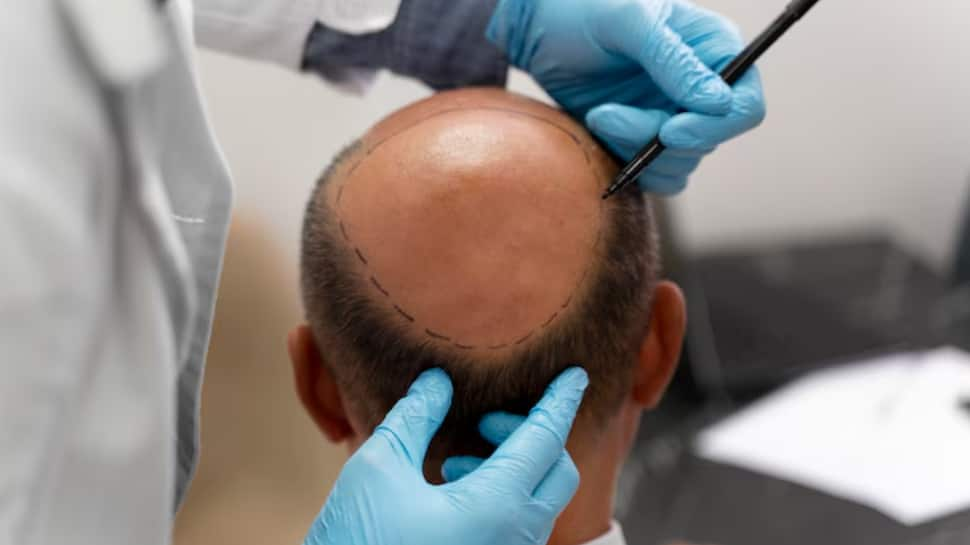Hair loss is becoming prevalent and more common due to technology and genetics, lifestyle changes, stress, and hormonal changes. Infact, about 40–50% of men and women face hair loss issues by the age of 40 years, which may lead to psychological stress and a decline in confidence and self-worth.
Fortunately, technology has made surgery easier than before, along with the recovery time. Dr BL Jangid, Dermatologist, Hair Transplant Surgeon, SkinQure Clinic, Saket, Delhi, says, “People who wish to have hair restoration can feel more assured due to advancements in cosmetic medicine. Hair transplantation, a surgical technique, is extremely popular among over people of different ages and is set to make an even greater name for itself in the near future. The only implication is that due to greater demand, loads of clinics offering cheap hair transplantation are offering lucrative offers, which is not safe.”
2 Men Die After Hair Transplant
Two engineers died allegedly after their hair transplant surgeries at Dr Anushka Tiwari’s clinic, Empire, in Kanpur. The incidents came to light after the family of one of the victims filed a complaint on the chief minister’s portal against the private clinic.
According to the complaint of Vineet Dubey’s wife, Jaya Tripathi, her husband had a badly swollen face and was in pain before his death on March 14, a day after undergoing a hair transplant surgery at Dr Tiwari’s clinic, PTI cited Additional DCP West Vijendra Dwivedi as saying.
The death of two young men from Kanpur who underwent transplant surgery is shocking for the entire nation and community. It came to the public as shocking news, and the doctors in concerned, or doing this surgery were irresponsible considering the circumstances. Reportedly, the two men got the surgeries done at a clinic run by a dentist, which, legally, under no circumstances qualifies them for doing such elaborate tasks. One of the men was said to have diabetes and hypertension, and these, along with post-surgical complications, are said to lead to severe outcomes regarding fatality.
Why This Happened
Dr Jangid says, “The facts concerning this case are straightforward. People will continue to do what they want until these bold surgeries are reprimanded. Hair transplant is a drastic method of hair restoration. Like any type of surgery, it involves some pretty meticulous work, like an orderly, sterilised environment, basic knowledge about anatomy, along with all practical surgical preferences. It seems that none were followed. The surgeon was unqualified, the clinical setup lacked medical infrastructure, and crucial health screenings were allegedly ignored.”
Patients with systemic conditions such as diabetes, high blood pressure, or compromised immunity require special attention before and after surgery. An experienced, certified surgeon would conduct pre-operative evaluations and proceed only if it’s medically safe.
How You Can Stay Safe
This incident, which is now trending widely across news platforms, is a grim reminder to never compromise on safety.
1. Select an Experienced Surgeon: Check that your potential surgeon is a practicing dermatologist or plastic surgeon and has completed specialised training in hair transplants. The scope of his/her practice makes a difference- having experience improves outcomes and patient safety.
2. Check Clinic’s Registration: Dr Jangid says, “Clinics also need to be formally registered, well-maintained, and have the capacity to deal with emergencies. Please do not go to places that advertise low packages without any documented safety measures or qualifications of the doctors.”
3. Obtain Diagnostic Testing: Provide all of your medical documentation. He/She has to screen you for potential bleeding risk factors and is likely to be allergic, diabetic, hypertensive, or a healing-compromised individual before surgery.
4. Comply with Medical Guidelines: You also need to communicate with your physician and follow all the instructions post-surgery, including taking the medication as directed to promote a healthy recovery.
Dr Jangid says, “If done by trained professionals or under the supervision of a qualified dermatologist., it can be a safe and motivational solution. The HT procedure can be performed in an outpatient day care facility equipped to handle surgical complications and emergencies. Selecting the wrong clinic or doctor has the potential for extreme consequences.”
This isn’t merely a sensationalist story; it’s a reminder to conduct comprehensive pre-surgical research, emphasising safety while prioritising consultation with a licensed professional and thoroughly vetted clinics. Your well-being and life should never be at risk.

